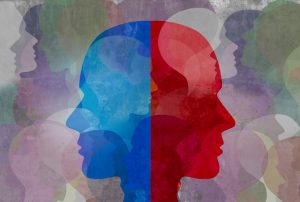Many people first consider physical limitations while considering Social Security Disability payments (such as SSDI). Millions of Americans, however, suffer from mental illnesses that prevent them from working, such as bipolar disorder. Despite the fact that bipolar disorder is very uncommon, the majority of persons who suffer from it report being severely impaired.
Bipolar disorder is a mental condition marked by mood, energy, and activity level swings that are out of the ordinary. People with bipolar illness typically have different levels of ability to carry out daily chores. Bipolar illness causes noticeable mood swings, ranging from manic, euphoric intervals to depressive, sorrowful periods. Keep reading to learn more about this disorder and whether or not it is covered by SSDI. Remember to contact PLBH at (800) 435-7542 if you need help applying for SSDI.
There are four types of bipolar disorder
Bipolar disorder is divided into four types:
- Bipolar I. Manic episodes that persist at least seven (7) days or are severe enough to need hospitalization are classified as Bipolar I Disorder. Depressive episodes normally last two (2) weeks or more.
- Bipolar II Disorder involves both depressed and manic episodes, however the manic phases are less severe.
- Cyclothymic Disorder, commonly known as cyclothymia, is characterized by several bouts of hypomanic and depressed symptoms over a period of at least two (2) years.
- Other Specified and Unspecified Bipolar and Related Disorders: This category includes bipolar symptoms that don’t fit into any of the other diagnoses.
Bipolar illness has a variety of effects on people. Although medicine and psychotherapy can help regulate bipolar illness symptoms, they may not be fully eliminated.
The SSA’s Stance on Bipolar Disease
The Social Security Administration (SSA) maintains a list of impairments that includes both physical and mental health issues that are severe enough to preclude an individual from working, as a California disability benefits attorney may explain. The SSA’s list of disabilities includes bipolar disorder.
You must provide the following proof to qualify for SSDI payments if you have bipolar disorder: documentation of a bipolar illness diagnosis that includes at least three of the following symptoms:
- Pressured speech
- Flight of ideas
- Inflated self-esteem
- Decreased need for sleep
- Distractibility
- Involvement in activities that have a high probability of painful consequences that are not recognized
- Increase in goal-directed activity or psychomotor agitation
In addition, the person must also meet other criteria that you can discuss with your SSDI attorney.
Call now for help
PLBH will help you evaluate if you qualify for SSDI if you have been diagnosed with bipolar disorder or another mental health illness and are unable to work as a result. Our team of experienced California disability benefits lawyers has extensive expertise assisting individuals in putting together successful benefit applications. Contact our company immediately at (800) 435-7542 to learn more or to book a consultation.

